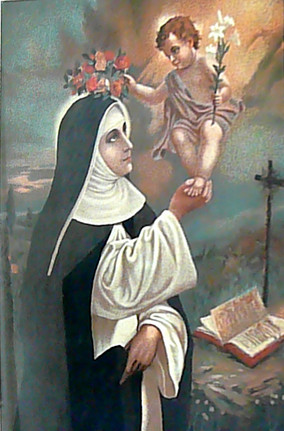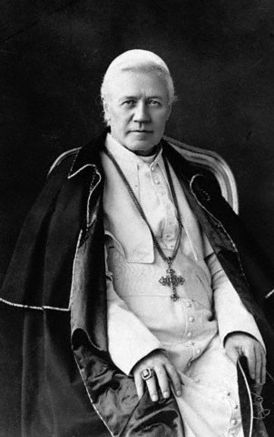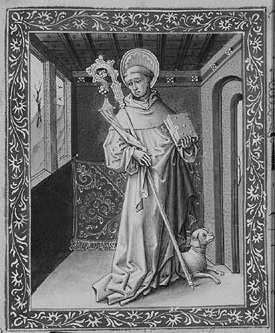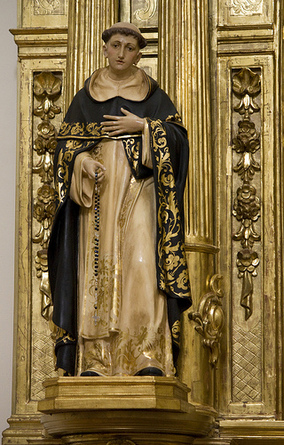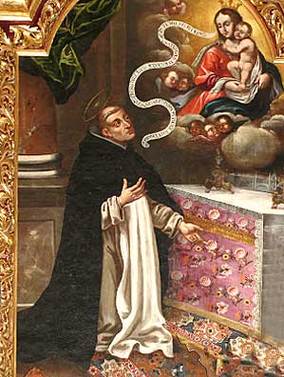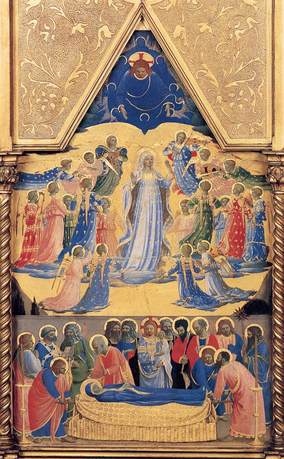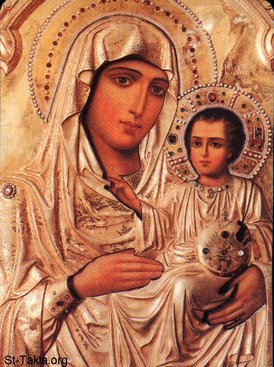The reading at Lauds this morning was from Sirach 8. You’ll recall that the Book of Sirach is also called the Liber Ecclesiasticus (that is, the “church book”) because of its wide use in catechetics and in the sacred Liturgy. There is nothing in Sirach that is not applicable to us today! Monks, nuns, priests and laity who do the Office of Readings will read the entire book in the course of 2-3 weeks. As a point of comparison, Sirach is one of those books that Protestants do not include in their version of the Bible; Catholics consider Sirach to be both inspired and canonical and worthy of prayer and meditation.
In general one may say that the author Sirach is concerned with interfacing of all parts of our lives: family, friendship, economy, politics, worship, good public order, etc. The Catholic term here would be communio, while the Protestants are inclined to use the concept of fellowship, but to be fair at today’s writing, Catholics use the word “fellowship” in the Liturgy and that is mistaken. For the Catholic, communio is not merely the horizontal relationship with sisters and brothers –mere humanitarianism– but first communion (relationship) with the Blessed Trinity and then communion with sister and brother. Communion with the Trinity and with neighbor leads to one’s greater freedom (think of Msgr Giussani’s work in Communion & Liberation movement). To take this idea one step further, there is no hard separation between communion with the Trinity and neighbor. Catholics hold fast to the both/and of reality: we are to live in communion with the Trinity, basing our life analogously on the inner life of the Trinity and serving our sister and brother. Saint Benedict in his Rule shows us this is the way to God. What struck me today was the question: To whom do we go for counsel? How do I live in a more perfect freedom with the Trinity and my neighbor? In what ways do I serve the Lord well? How have I looked with tenderness on my humanity, and that of others?
Certainly, I have not always been served well by the advice offered by those placed over me. Superiors, whether secular or religious, have not always been too attuned to the Divine Will through prayer, fasting and lectio that their own issues have been the source of counsel rather than the Will of God; I am amazed that I’ve survived as well as I have. In profound ways, I have to say, the people I was told to have confidence in turned out be frauds when it came to working with one’s humanity, discernment of Spirits, the spiritual life, interpersonal relationships, ecclesial politics, etc. After praying on what Sirach has to say today, I wonder if we as members of the Body of Christ have paid too little attention to the Wisdom literature of the Bible.
Jesus, son of Eleazar, son of Sirach writes:
Contend not with an influential man, lest you fall into his power. Quarrel not with a rich man, lest he pay out the price of your downfall; For gold has dazzled many, and perverts the character of princes. Dispute not with a man of railing speech, heap no wood upon his fire. Be not too familiar with an unruly man, lest he speak ill of your forebears. Shame not a repentant sinner; remember, we all are guilty. Insult no man when he is old, for some of us, too, will grow old. Rejoice not when a man dies; remember, we are all to die. Spurn not the discourse of the wise, but acquaint yourself with their proverbs; From them you will acquire the training to serve in the presence of princes. Reject not the tradition of old men which they have learned from their fathers; From it you will obtain the knowledge how to answer in time of need. Kindle not the coals of a sinner, lest you be consumed in his flaming fire. Let not the impious man intimidate you; it will set him in ambush against you. Lend not to one more powerful than yourself; and whatever you lend, count it as lost. Go not surety beyond your means; think any pledge a debt you must pay. Contend not at law with a judge, for he will settle it according to his whim. Travel not with a ruthless man, lest he weigh you down with calamity; For he will go his own way straight, and through his folly you will perish with him. Provoke no quarrel with a quick-tempered man, nor ride with him through the desert, For bloodshed is nothing to him; when there is no one to help you, he will destroy you. Take no counsel with a fool, for he can keep nothing to himself. Before a stranger do nothing that should be kept secret, for you know not what it will engender. Open your heart to no man, and banish not your happiness (Sirach 8).
